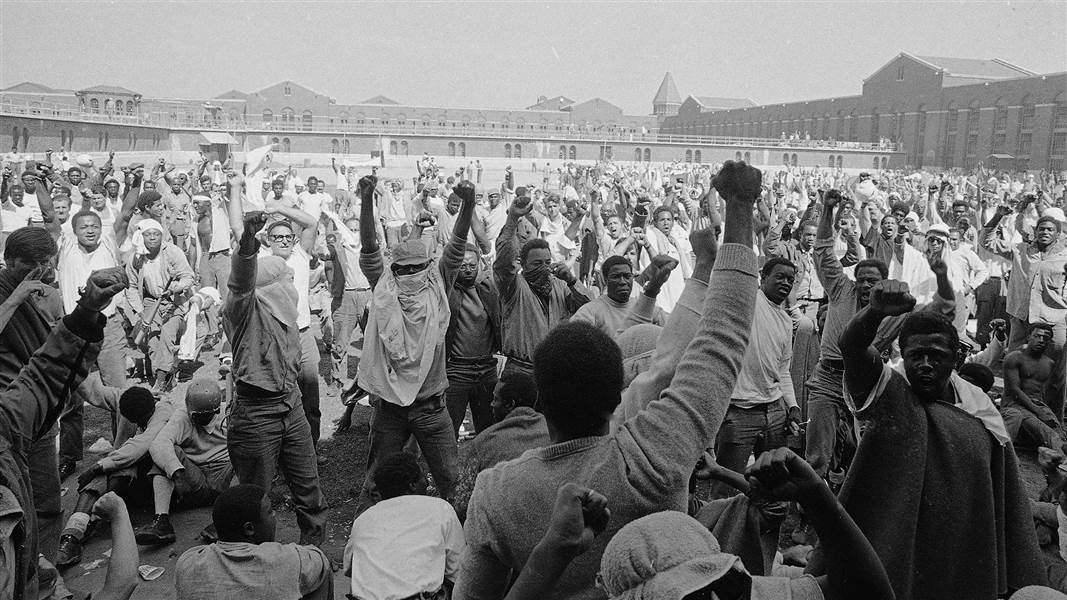Filed under: Action, Announcement, Incarceration, Southeast

Repression for the September 2016 Prisoner Strike continues to this day. One example is Florida prisoner Julius Smith currently at Hamilton CI. His case represents an extreme but unfortunately common example of repression where correctional officers punish a prisoner for alleged gang affiliations as a result of efforts to communicate with the outside world about conditions behind the walls.
This link includes phone numbers and a script to make two quick calls for Julius.
As you call for Julius, also take the opportunity to tell prison officials you have been watching the horrors inside TX prisons in the hurricane Harvey impact zone, and you expect to see FL prisoners evacuated without hesitation.
Almost 100,000 people will be trapped in Florida prisons during Hurricane Irma. In addition to the numbers related to Julius, you call the FL Department of Corrections main line at (850) 488-0420 and demand they evacuate prisons in harms way.
As activist Cara Jennings (famous for challenging Governor Scott in a coffee shop last year, among other things) said in her Facebook post calling for prison evacuations, “They will tell you they are monitoring the storm—let them know we are monitoring their (in)action and that we stand with our incarcerated sisters and brothers on the inside!”
Background on FL and the 2016 Attica Anniversary
One year ago today Florida prisoners at the Holmes Correctional Institution kicked off the largest coordinated prisoner strike in U.S. history. The September 7 uprising at Holmes was just the beginning in Florida.
By September 9, at least 10 other facilities in Florida, and dozens across the country would experience disturbances ranging from minor incidents to major disruptions of prison life. Personal reports from prisoners across the state indicate that what started as a basic day of non-cooperation was escalated by correctional officers into full-scale riots. Prisons around the country experienced similar incidents when refusing to participate in their own slavery by skipping work assignments and meals.
Some of those same prisoners still sit in solitary confinement or Close Management units dispersed across the state stripped of their belongings and threatened with loss of good time making some of their already absurd sentences even longer.
Almost one year later surrounding the call for prisoners and their family members to organize around August 19, the March in Washington DC for Prisoners’ Human Rights (and an end to the 13th Amendment’s legalized slavery), the entire state prison system was put on lockdown for almost a full week. This was meant as a punishment for last September and deterrent from participating in this August’s day of action.
Now word from the prisons is that they may also cancel visitations this September 9th weekend and possibly institute another system-wide lockdown to preempt further organization and momentum against the corrupt and brutal prison system in Florida.
As frustrating as this has been both for people on the inside and us on the outside it is a clear indication that our efforts are being taken seriously and they are having an impact on the system. This is the definition of strategy. Prison officials have been forced into a situation where they have to weigh the price of overreacting against the cost of under-reacting.
This is a moment where people of conscience on the inside and the outside are able to build a resistance movement. Not just a resistance to Trump or to the prison system but a resistance in defense of our fundamental right to self-determine our fates. Freedom, justice and equality can no longer just be public relation slogans of an overextended empire. They should mean something again.
Prison is the antithesis of freedom, justice or equality. So what does that say about a country with only 5% of the worlds population but 25% of its prisoners?
Let’s not stay silent about this any longer.





